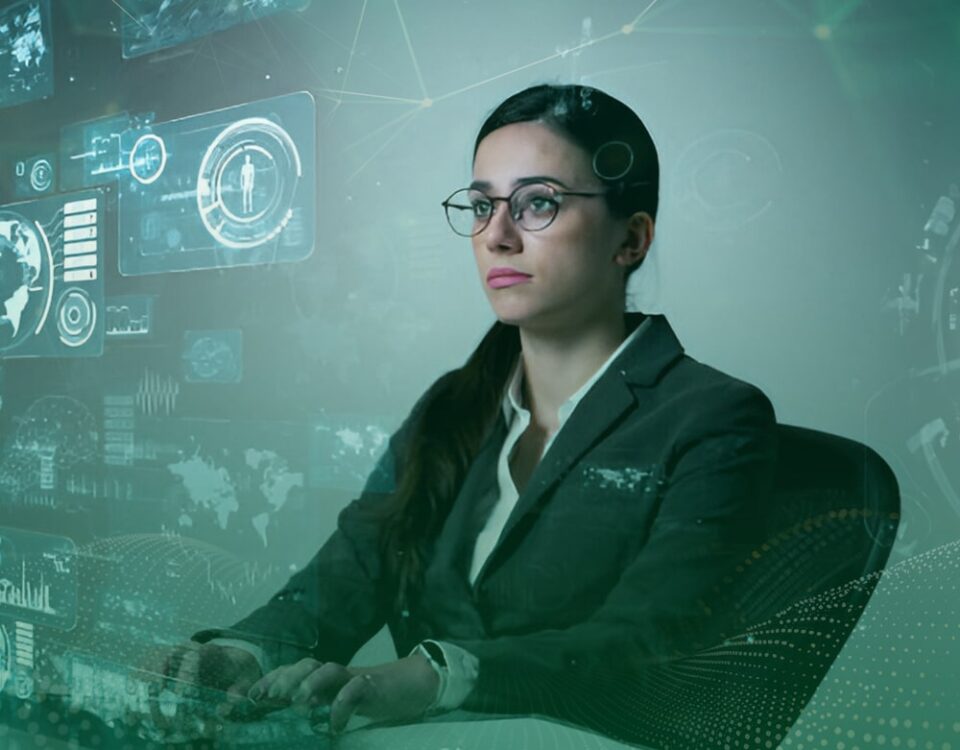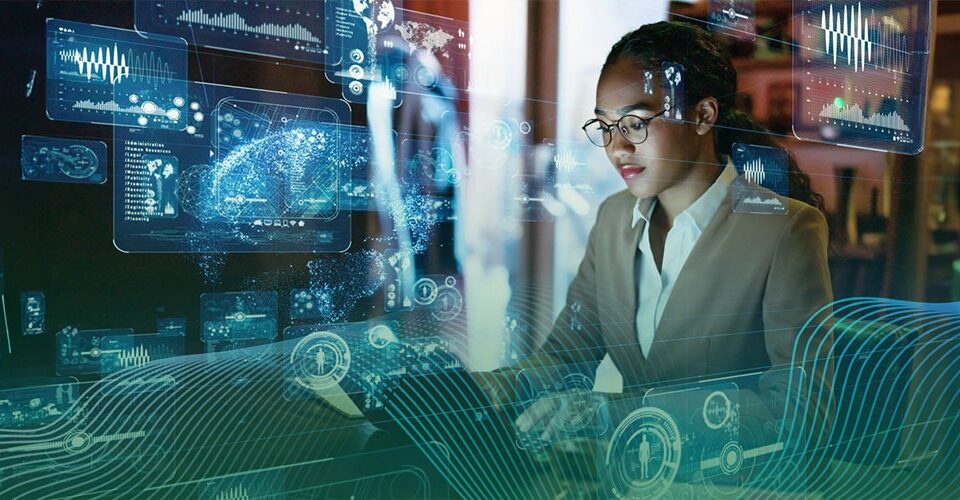
Mastering Communication: Discovering Interactive eLearning Modules
June 25, 2024
AI Integration in L&D: A Paradigm Shift in Workforce Training
June 21, 2024
Mastering Communication: Discovering Interactive eLearning Modules
June 25, 2024
AI Integration in L&D: A Paradigm Shift in Workforce Training
June 21, 2024What’s the Future of Learning and Development with AI?
Integrating artificial intelligence (AI) into L&D is a transformative journey that’s redefining continuous learning and skill enhancement. From personalized experiences to inclusive design , AI's impact on learning and development is profound. Please join us to explore AI's potential in shaping tomorrow's workforce.
AI: Revolutionizing Learning & Development--What Lies Ahead?
Here are some detailed insights into the upcoming changes in L&D through AI-driven advancements.
1. AI in Audio and Speech Recognition
- Voice-Activated Learning: One of AI's most significant advancements to the L&D landscape is voice-activated learning. AI-powered speech recognition technology facilitates hands-free learning, allowing employees to interact with training modules using voice commands. Voice-Activated Learning is beneficial in environments where hands-free operation is essential, such as manufacturing and healthcare. For instance, a technician could ask the AI for instructions on a complex machine repair without leaving the work area to consult a manual, thereby increasing efficiency and reducing downtime.
2. Localization Capabilities
- Language Learning and Accent Training: AI systems enhance language learning and accent training by providing real-time feedback on pronunciation and fluency. AI can also help develop personalized accent-reduction programs by analyzing speech patterns and identifying areas for improvement. This targeted approach allows individuals to correct mistakes, resulting in more explicit and confident communication. Thus, AI ensures effective communication across myriad regions for global companies with a diverse workforce.
- Machine Translation and Content Localization: AI-powered machine translation can be used to localize training content into multiple languages. Employees worldwide can access training materials in their native language, promoting more profound understanding and retention.
- Culturally Sensitive Content Delivery: AI can analyze cultural nuances and adapt training content accordingly. AI-powered learning ensures that training materials resonate with a global audience to avoid potential cultural misunderstandings.
3. Scalability
AI enables scalable, consistent, and high-quality training across large organizations. Traditional methods demand significant human resources and thus incur high costs, whereas safely and strategically-deployed AI offers personalized learning experiences. Thus, AI can optimize learning, automate 20% of the facilitator’s role, reduce clerical burdens, and improve pedagogy.
AI-powered learning solutions also analyze employee performance, identify skill gaps, and recommend targeted training. By predicting future needs, AI helps allocate resources effectively. For example, if a team consistently struggles with a regulatory topic in manufacturing, AI can instantly suggest easy-to-comprehend learning modules.
4. Accessibility
AI's capabilities enable the creation of highly adaptive and accessible learning environments, ensuring all employees, including those with disabilities, can benefit from training programs. In addition, advanced AI tools offer personalized interfaces, such as audio descriptions for visually impaired learners and real-time speech recognition for the speech impaired.
These innovations break down learning barriers, fostering a more accessible and equitable workplace where everyone can thrive. Thus, as AI continues to evolve, its potential to enhance accessibility will not only comply with regulatory standards but also drive organizational success.
5. AI in Image Recognition
AI can analyze visual data to tailor learning content to individual needs. For example, by using computer vision, an AI system can assess a learner’s performance in a physical task, providing instant feedback and suggestions for improvement. Integrating these technologies will enhance engagement and personalization, aligning with the evolving nature of work and the increasing demand for adaptive, AI-driven solutions. This is particularly useful in fields like manufacturing and healthcare wherein practical skills are critical.
How Can Ozemio Help in Futureproofing your L&D Landscape?
The future of Learning and Development (L&D) is driven by personalization, empowerment, and collaboration. Hence, Ozemio's MIO stands at the forefront of this transformation, leveraging AI to create a revolutionary learning experience for both individuals and organizations.
MIO is an AI-powered learning companion that acts as a personal guide, knowledge concierge, and collaborative hub by filtering out unnecessary information to focus on what's important, and tailoringlearning experiences to individual needs while providing continuous support to enhance the learning journey.
Let’s discuss how MIO can redefine the future of the L&D landscape.
Personalized Learning: MIO transcends static training modules by utilizing generative AI to craft personalized learning journeys. MIO analyzes individual needs, goals, and learning styles to curate relevant content, recommend training programs, and generate personalized prompts and questions to optimize knowledge retention. Thus, MIO ensures each learner receives a focused, engaging experience that addresses his/her skill gaps.
Empowered Learners: MIO also encourages active participation. By analyzing learner interactions and performance, MIO guides individuals to formulate strategic questions and craft effective search queries, thus advancing critical thinking and independent knowledge-seeking that promotes a culture of continuous self-learning.
Collaborative Learning Ecosystem: MIO ensures access to the most up-to-date information through keyword-based research and continuous updates. This empowers on-the-fly learning, allowing employees to address skill gaps and acquire knowledge in real time. MIO also connects learners with subject matter experts and facilitates peer-to-peer learning, thus encouraging the exchange of best practices and ideas across departments and teams.
Human-Centric AI: At its core, MIO remains committed to human-centric innovationbecausets AI capabilities are designed to enhance human learning, not replace it. Therefore, MIO provides intuitive interaction through natural language processing, empowering learners with personalized experience, efficient knowledge retrieval, and the ability to engage in self-directed learning.
Ready to unlock AI's transformative power in your L&D strategy and empower your workforce for the future?
Naveen is a seasoned Learning and Development professional with 19 years of experience in training delivery, L&D operations, project management, and learning consultancy. He excels in managing projects, optimizing operations, and leading cross-functional teams. He is adept at conducting needs assessments, developing solutions, and enhancing workforce performance. He is passionate about fostering continuous learning, employee growth and driving organizational success through strategic learning initiatives.




